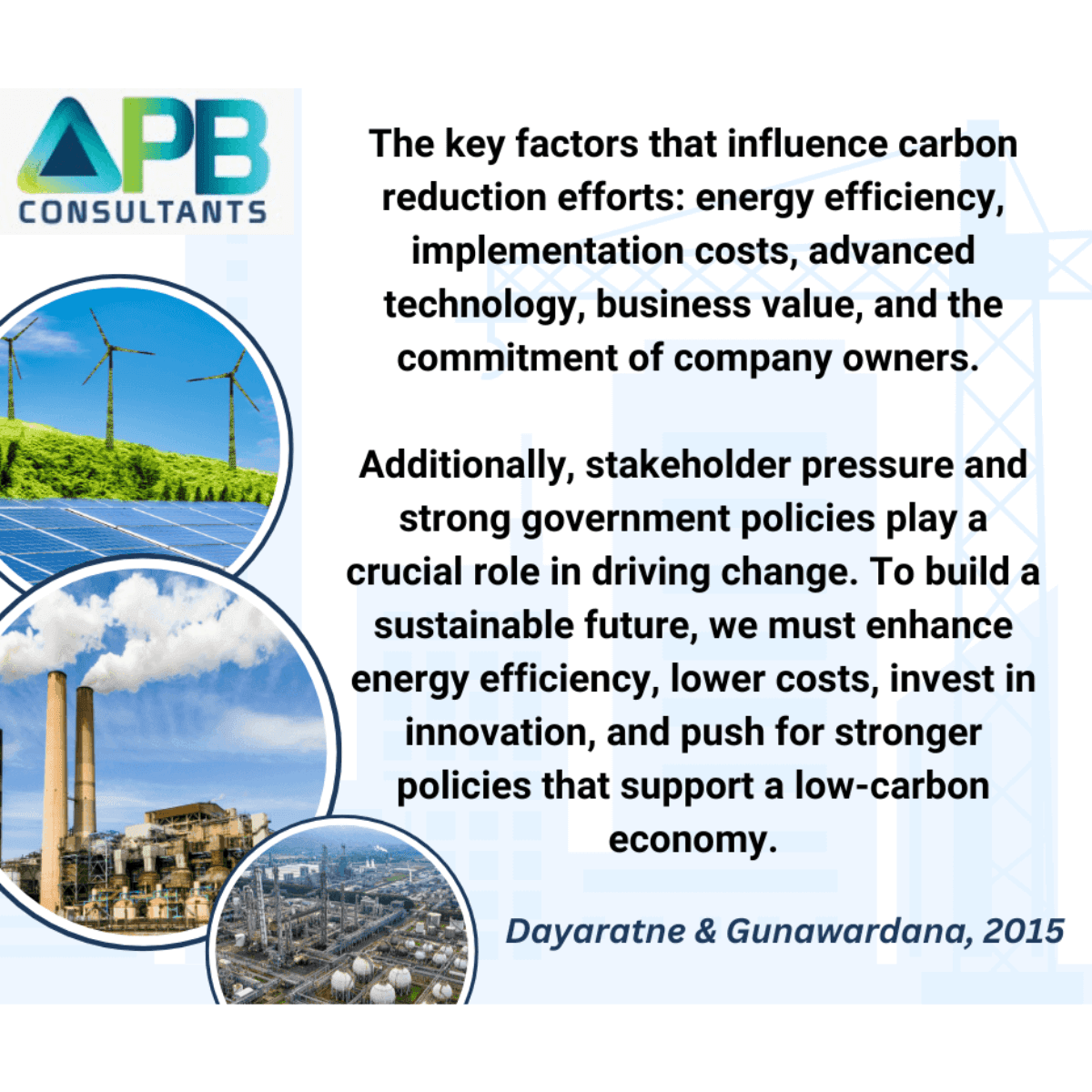As the world moves toward a low-carbon economy, businesses are increasingly expected to play a leading role in reducing greenhouse gas emissions. According to Dayaratne & Gunawardana (2015), several key factors significantly influence the success of carbon reduction efforts across industries.
1. Energy Efficiency
Improving energy efficiency is one of the most direct and cost-effective ways to lower carbon emissions. Efficient systems not only reduce environmental impact but also cut long-term operational costs, making sustainability a strategic advantage.
2. Costs of Implementation
Cost is a common barrier to adopting greener practices. Initial investments in low-carbon technologies can be high, particularly for small and medium enterprises. However, long-term benefits—including energy savings and enhanced brand reputation—often outweigh upfront expenses.
3. Advanced Technology
Access to modern, clean technologies is vital. Businesses equipped with innovative tools and processes are better positioned to meet emission targets and stay competitive in a changing regulatory landscape.
4. Business Value and Owner Commitment
Carbon reduction efforts thrive when there is a clear alignment with business values and leadership vision. The active commitment of company owners and top management ensures that sustainability is integrated into strategic planning and daily operations.
5. Stakeholder Engagement
Increasing expectations from customers, investors, and supply chain partners are pushing companies to act. Stakeholders are demanding transparency, accountability, and real action toward reducing emissions.
6. Strong Government Policies
Policy frameworks play a catalytic role. Supportive regulations, incentives for green investments, and strict emissions standards provide the external push needed to drive change at scale.
The Way Forward
Building a low-carbon future requires collective action. Businesses must focus on enhancing energy efficiency, reducing implementation barriers, investing in clean technology, and aligning corporate values with climate goals. At the same time, stakeholders and policymakers must collaborate to create an enabling environment for meaningful change.
At APB Consultants company, we guide organizations through this transformation—helping you turn carbon reduction into opportunity and innovation.
Reference:
Dayaratne, S. P., & Gunawardana, K. D. (2015). Carbon footprint reduction: a critical study of rubber production in small and medium scale enterprises in Sri Lanka. Journal of Cleaner Production, 103, 87-103.
